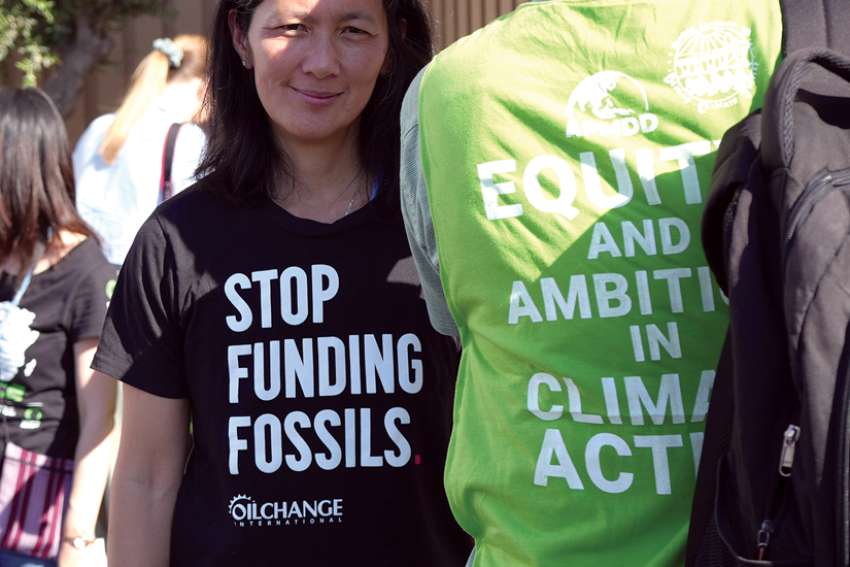“This simply isn’t enough to deal with the climate catastrophe we have on our hands,” the 21-year-old student and Development and Peace activist said via WhatsApp from Sharm El Sheikh, Egypt, as delegates dispersed.
The gathering of 90 heads of state, about 35,000 delegates and 190 countries ran almost two days beyond the conference’s scheduled two weeks and ended up with a first-ever agreement to set up a loss and damage fund to help poor nations that have suffered through disasters caused by climate change — floods, droughts, catastrophic storms, etc. But no commitment was made to phase out fossil fuels, the main driver of climate change.
“It is shocking to see that the world still cannot agree on that,” Shafi said. “I’m excited to follow the developments of the loss and damage fund, and I do think it is meaningful — but it is only one factor out of many, many others.”
Development and Peace came out in support of the African bishops’ conferences, saying that the sum of money available through the loss and damage fund is less important than what it is spent on. The Catholic development and humanitarian aid agency wants the money available for ecologically sustainable agriculture that keeps poor families on their land, growing food.
Development and Peace chimed in with the African bishops’ conferences of SECAM (Symposium of Episcopal Conferences of Africa and Madagascar) in calling for “a new culture based on integral ecology by putting peasant agroecology at the heart of adaptation and mitigation solutions.”
At Kairos, the Canadian ecumenical social justice collective, Global Partnership Co-ordinator for Africa and climate justice Radia Mbengue also highlighted how the loss and damage money should be spent.
“We need to ensure these funds are truly accessible to the most vulnerable and that developed countries, including Canada, are held accountable for the impact of their resource extraction companies around the world, especially on racialized communities,” she said.


